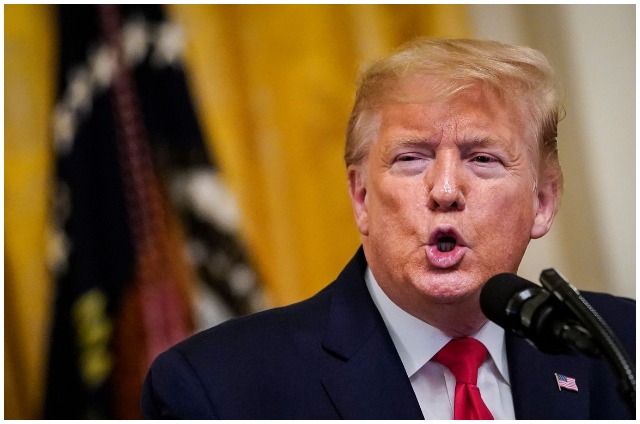

A three-judge panel on the Ninth Circuit Court of Appeals in Seattle heard an hour of oral arguments on whether the ban unconstitutionally intends to discriminate against Muslims, or is a “neutral” order on national security within the president’s powers, as the government contends.
Judges questioned lawyers for both sides about legal precedent, the limits of presidential powers and the relevance of Trump’s own promises, during and after his election campaign, to ban immigration by Muslims.
Neal Katyal, a former solicitor general in the Obama administration who is representing the state of Hawaii in the case, pointed to Trump’s December 2016 call for a “total and complete shutdown of Muslims entering the United States” as evidence of the ban’s discriminatory intent.
Jeffrey Wall, Trump’s acting solicitor general, insisted Trump had clarified that the intent of the ban was to target terrorists, not Muslims, and said that immigration law gives the president sweeping power to block entry to the United States.
The Trump administration appealed to the court over a decision by a federal judge in Hawaii that halted implementation of the entire executive order, which also sought to block issuances of new refugee admissions from around the world for 120 days.
A separate challenge was heard in a federal appeals court in Virginia earlier this month. Neither court indicated when it might issue a ruling.
If either court rules against the ban, it will remain suspended under a nationwide injunction. Legal experts said in any case, the ban was likely to end up before the Supreme Court.
“The issue is too important for the Supreme Court to pass up,” Cornell University law professor Stephen Yale-Loehr told CNN.
The Ninth Circuit Court of Appeals in San Francisco ruled against the original version of the travel ban in February, refusing to reinstate the rules on visas and refugee entry pending legal review.
Demonstrations erupted at international airports in the United States and around the world following Trump’s signing of the first executive order.
Challenges to the order triggered a fast-moving legal fight as refugees and US visa holders found themselves stranded at airports in the US and abroad.
The Trump administration said it believed it had addressed the legal concerns with its new order, which had dropped Iraq from the list of affected countries but maintained a 120-day freeze in US refugee admissions. The new order had been set to take effect on March 16.
-dpa










